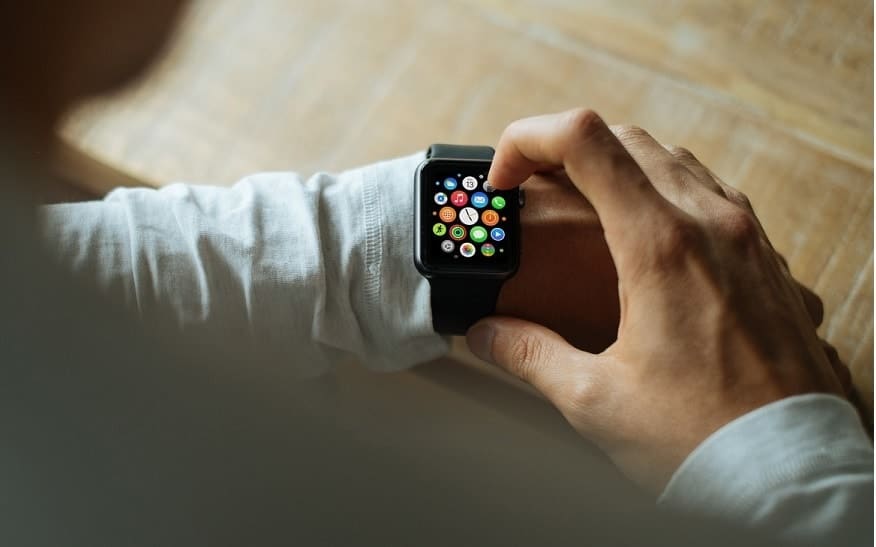In 2014, the New York Times published an article that explored the ever-growing presence of smartwatches in healthcare. The article argued that watches in the future will not only track time in increasingly complex ways, but will also play a more critical role in helping people stay healthy. These new watches which mimic the nomenclature of the smartphone are collectively known as smartwatches. The article predicted that in the near future, these devices would go beyond simply transferring app usability from a smartphone to your wrist.
The long-term goal of these devices was to solve problems and deliver benefits to the user in a fundamentally new way that was unique to the smartwatch. These high-tech wristbands would track a person’s fitness level while simultaneously helping with the treatment and management of chronic health conditions. Since 2014, smartwatches have expanded in their functionality and popularity. Many smartwatches can help monitor heart conditions and sleep issues, but now these devices will assist in treating eating disorders.
For readers who are not familiar with smartwatches, here is a brief summary of these newer devices. Basically, a smartwatch is a small computer that is worn on the wrist. They can associate with a smartphone and are extensively used for long-term biomonitoring or telemetry. More recent smartwatches have smartphone functionality and utilize Bluetooth and LTE technology.
Reflecting current medical industry trends, many technology companies have been expanding there presence in the healthcare industry. The tech giant Apple has a number of rumored healthcare-themed projects. For example, a recent patent application that was made public suggests that the company may soon offer a wearable device that accurately monitors blood pressure. In a different healthcare specialty, Apple is donating smartwatches for a new research on eating disorders. The tech company will donate Apple Watches to a binge eating disorder (BED) and bulimia nervosa (BN) study.
The term eating disorder is a broad medical term. The diagnostic system in the fifth edition of the Diagnostic and Statistical Manual of Mental Disorders (DSM-5) classifies eating disorders into four basic diagnostic categories: anorexia nervosa (AN), bulimia nervosa (BN), binge eating disorder (BED) and Other Specified Feeding or Eating Disorder (OSFED). The most notable change in the DSM-5 over the previous editions was the recognition of binge eating disorder as a separate eating disorder category. In recent years illnesses like bulimia have gained public attention. Entrepreneur, actor and political activist Jane Fonda recently spoke publicly about her battles with bulimia.
The goal of the binge eating study is to discover whether this illness is biological or behavioral in origin. More precisely, the study is hoping to better understand the genetic factors that may be associated with binge eating disorder (BED) and bulimia nervosa (BN) in order to develop better treatments for the millions of people who suffer from these illnesses.
The creator of the iPhone is donating 1,000 of its Apple Watches to this study. The company itself is not conducting the study or analyzing any of the data. However, researchers believe that Apple’s smartwatch technology could help to greatly expand the medical understanding of how and why eating disorders occur. Participants in this study will wear the Apple Watch in order to monitor their heart rates over an entire month. They will use a mobile app on the smartwatch to record their thoughts and emotions during periods of binge eating activity. The researchers are investigating whether there are specific biological changes that occur in the body before a binge eating episode. Examples of biological changes that the study hopes to detect are changes in a person’s heart rate before each episode. This kind of data is something that the Apple Watch should readily detect and record.
A long-term goal is to use this data to predict binge eating episodes before they happen. In this way, medical professionals could specifically understand what happens to the human body in the time period leading up to binge and purging behavior. Ultimately, researchers hope to gain the ability to anticipate and change the course of these episodes.
Binge Eating Disorder (BED) and Bulimia Nervosa (BN) are dangerous conditions that require medical help. An individual suffering from bulimia nervosa may reveal several signs and symptoms, many which are the direct result of self-induced vomiting or other forms of purging, especially if the binge/purge cycle is repeated several times a week and/or day.
Physical signs and symptoms of this eating disorder include:
- Constant weight fluctuations
- Electrolyte imbalances, which can result in cardiac arrhythmia, cardiac arrest, or ultimately death
- Broken blood vessels within the eyes
- Enlarged glands in the neck and under the jawline
- Oral trauma, such as lacerations in the lining of the mouth or throat from repetitive vomiting
- Chronic dehydration
- Inflammation of the esophagus
- Chronic gastric reflux after eating or peptic ulcers
Other signs and symptoms of binge eating and purging are:
- The disappearance of large amounts of food
- Eating in secrecy
- Lack of control when eating
- Switching between periods of overeating and fasting
- Frequent use of the bathroom after meals
- Having the smell of vomit
Only experienced healthcare professionals can properly diagnosis eating disorders and provide crucial help. For additional information about binge eating and bulimia, please contact the staff at Toledo Center (RCC). Their Eating Disorders Programs provide a full range of treatment options for both adolescents and adults. The Toledo Center is located in the tranquil setting of Sylvania, Ohio – a historic suburb of Toledo, Ohio.
The EAT-26 (Eating Attitudes Test) assessment provides anonymous and quick feedback for a variety of eating-related health conditions.
Follow on Twitter: @Toledo_Center
Binge Eating, Bulimia Nervosa, Apple, Smartwatches

